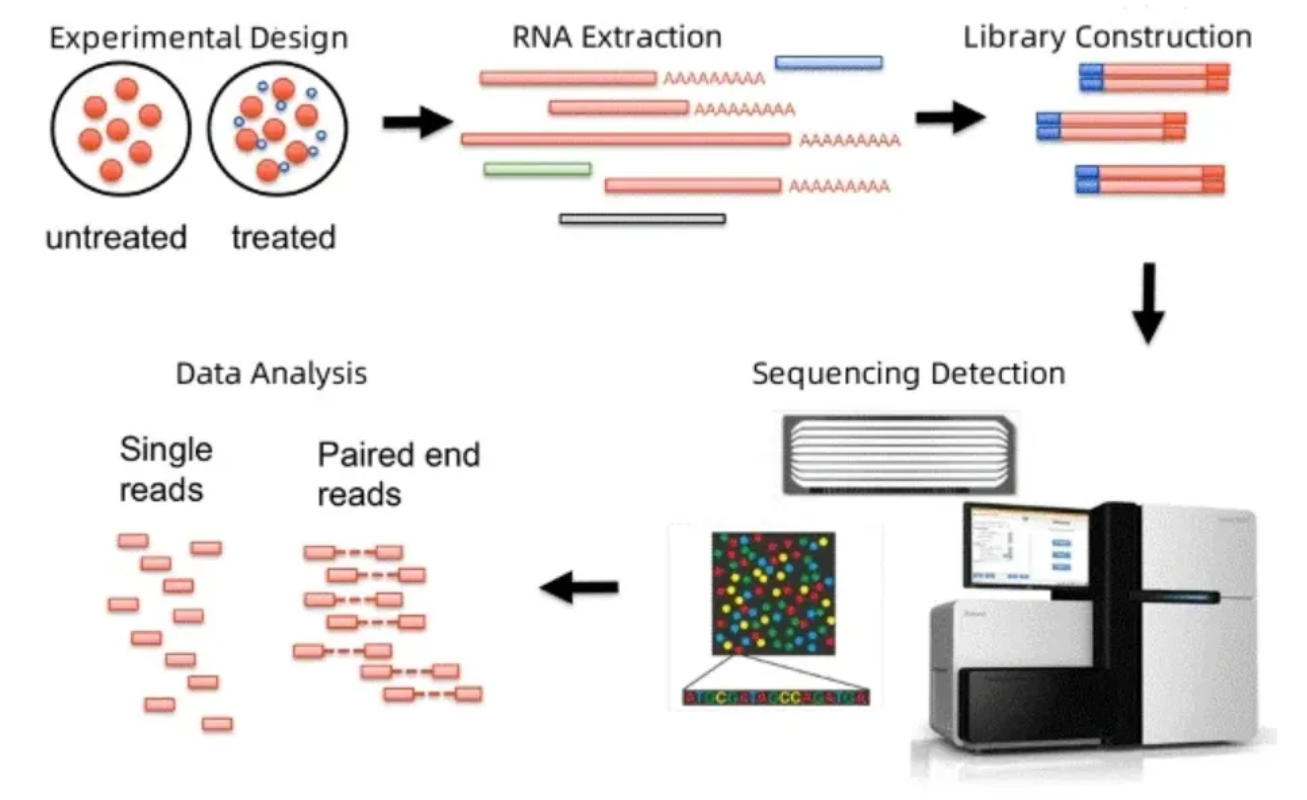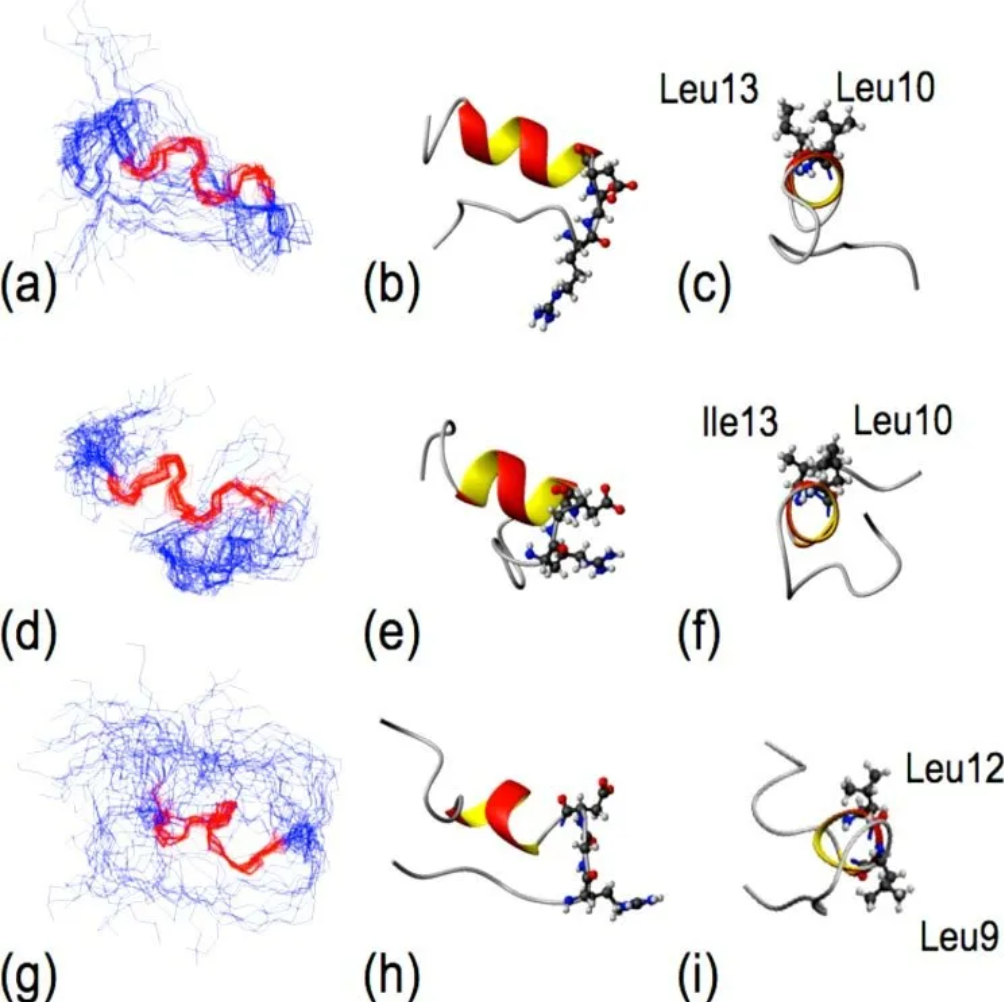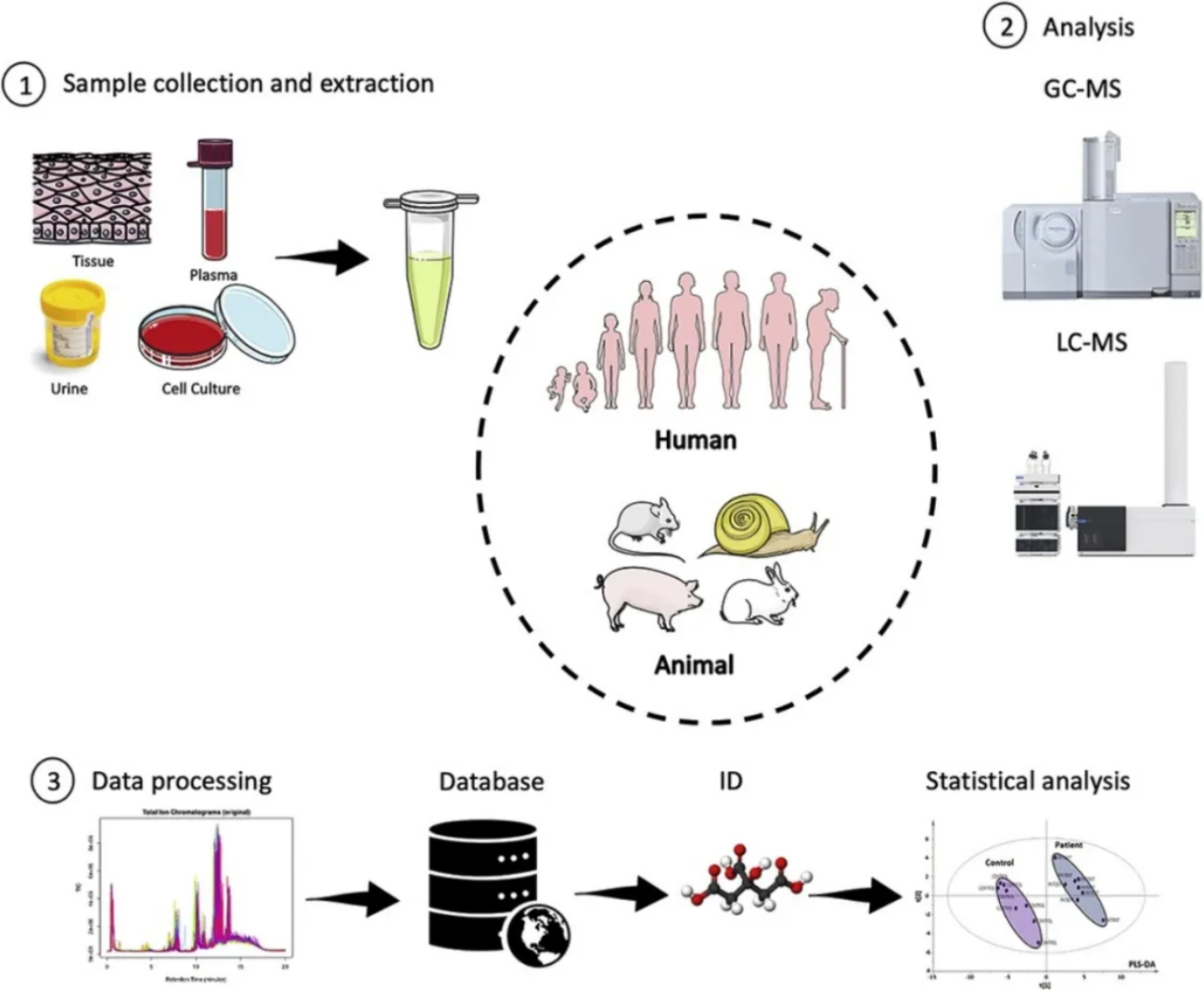Basic Life Science Research
-
Characterization of enzymes, coenzymes, and metabolic intermediates.
-
Quantitative analysis of proteins, peptides, lipids, and metabolites.
-
Enzyme activity measurement and reaction pathway elucidation.
-
Detection and quantification of gene expression profiles.
-
Mutation analysis, plasmid validation, and vector mapping.
-
Verification of gene knockdown, overexpression, or CRISPR/Cas9 edits.
-
Cell population characterization and viability assays.
-
Quantification of cellular markers and signaling proteins.
-
Subcellular localization and trafficking studies.
-
Determination of 3D molecular structures at atomic resolution.
-
Protein folding, conformational stability, and domain interaction analysis.
-
Ligand-binding and macromolecular complex characterization.
-
Temporal analysis of gene and protein expression during development.
-
Identification of signaling networks controlling differentiation and morphogenesis.
-
Comparative studies across developmental stages or model organisms.
-
Construction of molecular interaction and regulatory networks.
-
Quantitative modeling of cellular and metabolic systems.
-
Data-driven hypothesis generation using pathway enrichment analysis.
-
Quantification of metabolites and hormones in biological fluids.
-
Analysis of molecular responses to stress, diet, or pharmacological treatments.
-
Correlation of molecular data with functional physiological outcomes.
-
Differential proteomic profiling between healthy and diseased states.
-
Identification of diagnostic and prognostic molecular biomarkers.
-
Integration of histopathological and omics data for mechanism elucidation.
Basic life science research forms the foundation of modern biology, biotechnology, and medicine. It encompasses the exploration of fundamental biological mechanisms, from gene expression and protein function to cellular communication and metabolic regulation. Through basic research, scientists uncover the molecular principles that govern life processes, paving the way for advances in health, agriculture, and environmental science.
As biological systems become more complex and multidimensional, the demand for precise, reproducible, and high-resolution analytical support continues to grow. MtoZ Biolabs provides a full suite of advanced analytical services tailored to the needs of academic researchers, biotechnology companies, and pharmaceutical innovators. By integrating multi-omics platforms, cutting-edge mass spectrometry, chromatography, and bioinformatics analysis, we enable researchers to elucidate the molecular underpinnings of life with clarity and confidence.
Service at MtoZ Biolabs
MtoZ Biolabs provides integrated analytical and technical solutions that support fundamental investigations across every branch of life science. Leveraging advanced platforms including mass spectrometry (LC-MS/MS, MALDI-TOF, Orbitrap systems), chromatography (HPLC, GC, UPLC), high-throughput sequencing, spectroscopy (NMR, FTIR, UV-Vis), and bioinformatics analysis, we help researchers obtain accurate molecular, cellular, and systemic data essential for discovery-driven studies.
Our analytical and research support services extend across the following core disciplines:
1. Biochemistry Research Support
Techniques Applied: LC-MS/MS, HPLC, UV-Vis spectroscopy, enzyme kinetics assays, and electrophoretic profiling.
Service Capabilities:
Applications:
Understanding biochemical mechanisms of catalysis, energy metabolism, and biomolecular interactions in living systems.
2. Molecular Biology Research Support
Techniques Applied: PCR, qPCR, RNA-Seq, and DNA sequencing.
Service Capabilities:
Applications:
Exploring genetic regulation, transcriptional dynamics, and molecular control of biological processes.

Figure 1. Workflow for mRNA Sequencing Service
3. Cell Biology Research Support
Techniques Applied: Flow cytometry, confocal microscopy, Western blotting, immunofluorescence, and ELISA.
Service Capabilities:
Applications:
Investigating cell signaling pathways, apoptosis, proliferation, and differentiation in physiological and pathological conditions.
4. Structural Biology Research Support
Techniques Applied: X-ray crystallography, Cryo-EM, circular dichroism (CD) spectroscopy, NMR spectroscopy, and molecular docking.
Service Capabilities:
Applications:
Understanding structure–function relationships of proteins, nucleic acids, and complexes for mechanistic and therapeutic insight.

DiCara D. et al. J Biol Chem. 2007.
Figure 2. Analysis of peptide structure using NMR spectroscopy.
5. Developmental Biology Research Support
Techniques Applied: RNA-Seq, in situ hybridization, quantitative proteomics, and metabolomic profiling.
Service Capabilities:
Applications:
Decoding molecular mechanisms of embryogenesis, tissue patterning, and cellular fate specification.

Zeki, Ö. C. et al. J. Pharm. Biomed, 2020.
Figure 3. Untargeted Metabolomics Analysis Workflow
6. Systems Biology Research Support
Techniques Applied: Multi-omics integration (proteomics, transcriptomics, metabolomics), network modeling, and bioinformatic correlation analysis.
Service Capabilities:
Applications:
Elucidating cross-level biological regulation and predicting system behavior under genetic or environmental perturbations.
7. Physiology Research Support
Techniques Applied: LC-MS-based metabolite quantification, hormone analysis, electrophysiological data integration, and protein biomarker assays.
Service Capabilities:
Applications:
Understanding molecular mechanisms underlying homeostasis, adaptation, and organismal responses to stimuli.
8. Pathology Research Support
Techniques Applied: Quantitative proteomics, histopathology-assisted LC-MS, biomarker validation, and tissue-specific metabolomics.
Service Capabilities:
Applications:
Supporting disease mechanism discovery, therapeutic target identification, and biomarker-based precision diagnostics.
Service Advantages
☑️Comprehensive Analytical Platform
Multi-omics integration combining mass spectrometry, chromatography, sequencing, and bioinformatics under one service framework.
☑️Expert Scientific Team
A multidisciplinary team of biologists, chemists, and bioinformaticians providing end-to-end technical support.
☑️Customizable Research Solutions
Flexible experimental designs tailored to the complexity, scale, and goals of each study.
☑️High Data Accuracy and Reproducibility
Advanced calibration, validation, and internal standardization ensure consistent and verifiable results.
☑️Comprehensive Data Interpretation
In-depth data analysis, visualization, and biological interpretation provided by dedicated bioinformatics experts.
Sample Submission Suggestions
1. Sample Types: Cells, tissues, plasma, serum, urine, purified proteins, nucleic acids, and metabolites, or other biological samples.
2. Because the sample quantity, concentration, and transport conditions vary across experiments, please contact MtoZ Biolabs in advance to receive a customized sample submission guide specific to your project requirements.
MtoZ Biolabs is committed to supporting the global life science community by delivering comprehensive experimental solutions that transform raw data into actionable biological insights. Our mission is to accelerate discovery, ensure data integrity, and empower researchers to explore biology at unprecedented depth and precision. Free project evaluation, welcome to learn more details.
How to order?







